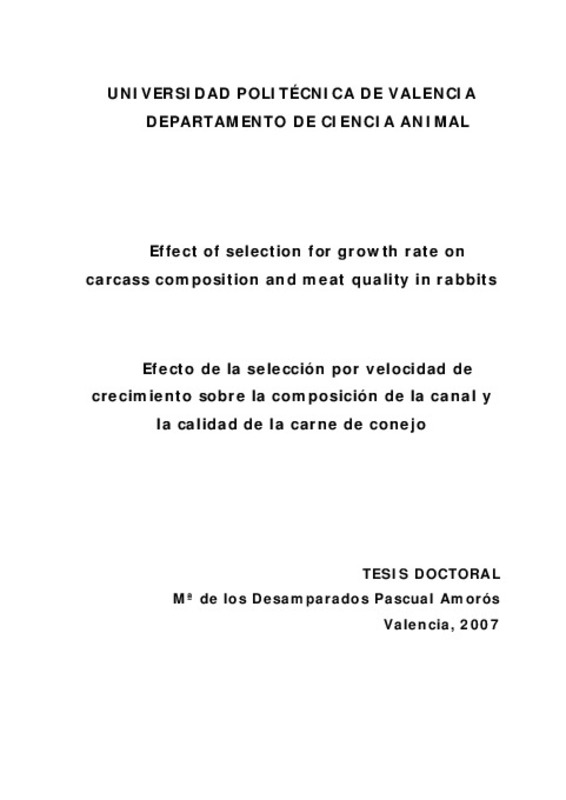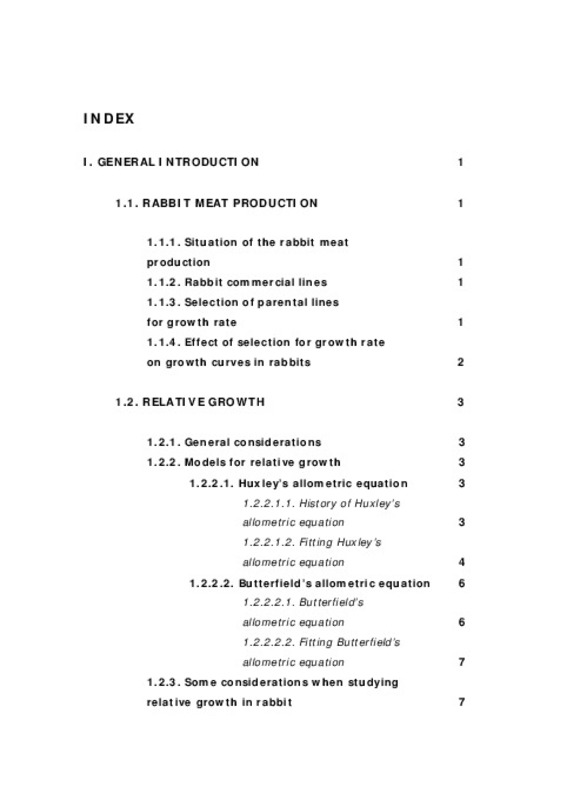- RiuNet repositorio UPV
- :
- Investigación
- :
- Tesis doctorales
- :
- Ver ítem
JavaScript is disabled for your browser. Some features of this site may not work without it.
Buscar en RiuNet
Listar
Mi cuenta
Estadísticas
Ayuda RiuNet
Admin. UPV
Effect of selection for growth rate on carcass composition and meat quality in rabbits
Mostrar el registro completo del ítem
Pascual Amorós, MDLD. (2007). Effect of selection for growth rate on carcass composition and meat quality in rabbits [Tesis doctoral]. Universitat Politècnica de València. https://doi.org/10.4995/Thesis/10251/1938
Por favor, use este identificador para citar o enlazar este ítem: http://hdl.handle.net/10251/1938
Ficheros en el ítem
Metadatos del ítem
| Título: | Effect of selection for growth rate on carcass composition and meat quality in rabbits | |||
| Autor: | PASCUAL AMORÓS, MARÍA DE LOS DESAMPARADO | |||
| Director(es): | Pla Torres, Marcial | |||
| Entidad UPV: |
|
|||
| Fecha acto/lectura: |
|
|||
| Resumen: |
The objective of the present thesis was to study the effect of the selection for growth rate on the carcass and meat quality of line R, which is a line of rabbits selected for growth rate between the 4th and 9th week of ...[+]
|
|||
| Palabras clave: |
|
|||
| Código UNESCO: |
|
|||
| Derechos de uso: | Reserva de todos los derechos | |||
| DOI: |
|
|||
| Editorial: |
|
|||
| Tipo: |
|
recommendations
Este ítem aparece en la(s) siguiente(s) colección(ones)
-
Tesis doctorales [5404]







![Text file [Text]](/themes/UPV/images/text.png)



